The greatest of love stories: Panel shares Indigenous perspectives on the eclipse and astronomy
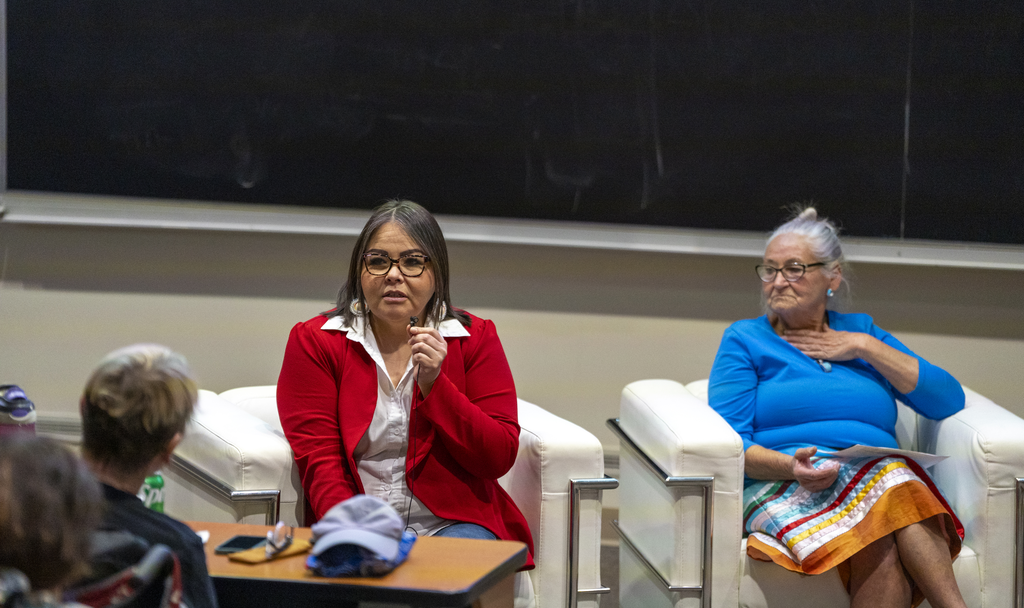
Vicki Monague won’t be going outside this afternoon to watch the total solar eclipse.
Vicki, who is Pottawatomi-Ojibwe Anishinaabe Kwe from Christian Island of the wolf clan, will instead honour the teachings passed down from her grandmother and mother. She’ll be staying inside her home with her three children. “I really want to make sure my children know why we don’t go outside during an eclipse.”
She was denied that opportunity as a student at a residential day school. Vicki left in the morning while her mother was covering all the windows and mirrors in their home. The non-Indigenous teachers passed out eclipse glasses, marched the students outside and told them to look up.
Vicki says her parents were furious when they found out what had happened. “We were not supposed to ever look at the eclipse.” She was told that it marks the reunion of Grandmother Moon and Grandfather Sun after decades apart. “It’s the greatest of all love stories.”
The eclipse will be a day for a “deep, deep pause”, with introspection and gratitude. “I’ll be sending my thoughts out and supporting the work happening on a celestial level.”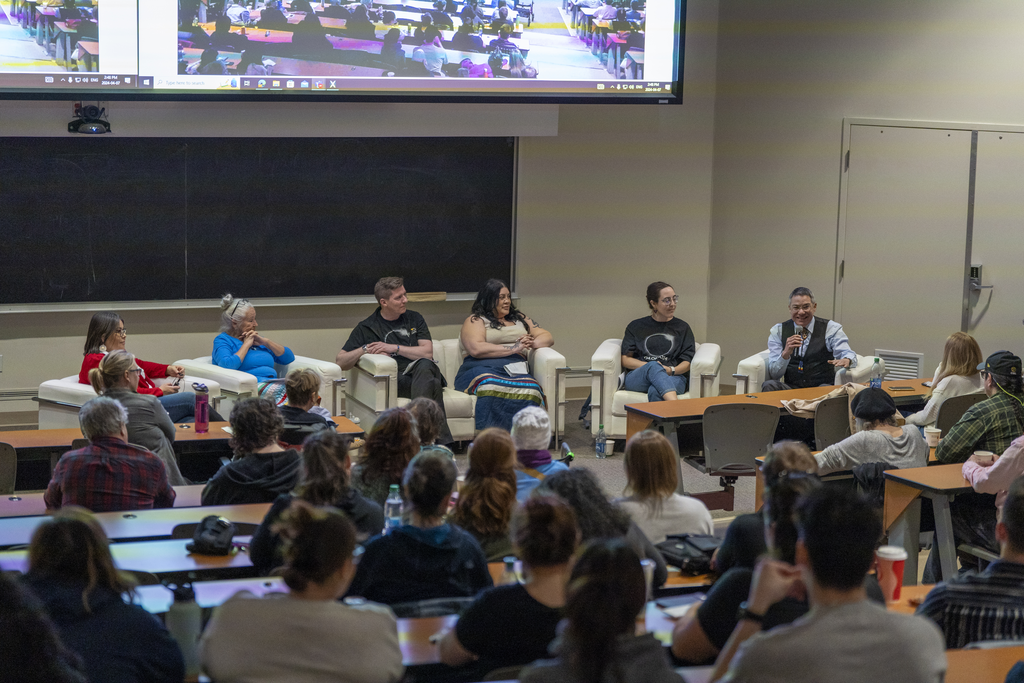
It will also be a bittersweet day for Vicki who recently lost her grandmother. “She meant the world to me. I see my grandmother when I look up into the Moon.”
While some people warn of disturbances resulting from the eclipse, Vicki says this once-in-a-lifetime celestial event can be a beautiful time for a good life, renewed peace, serenity, joy, happiness, kindness, love and truth.
Vicki shared her story during Indigenous Perspectives – Eclipse and Star Stories. She was one of five panelists providing Indigenous perspectives on eclipses and astronomy during the Sunday lecture in the Michael G. DeGroote Centre for Learning and Discovery. The event also featured Elder Katherine Knott, who has been part of the Elder in Residence program at McMaster for seven years, together with Metis student and scholar Bonita Marie Bohnet, McMaster alumnae Melanie Demers who worked with professor Laura Parker on galaxy group research, and scientist Corey Gray, who’s working on a Nobel Prize-winning astronomy project at Caltech and who recruited his mother Sharon Yellowfly to translate scientific documents into the Blackfoot language.
In her welcoming remarks, Katherine said there are simple and clear lessons to be drawn from the April 8 eclipse. “There will be light after darkness. Something new will happen because of the eclipse. And it is not for us to decide what next is.”
The last community event before the eclipse was among the first initiatives planned by assistant professor Robert Cockcroft in the Department of Physics and Astronomy. As Robert noted at the start of the lecture, McMaster University shares both the land and the sky with the Mississauga and Haudenosaunee nations.
Robert called the lecture an act of reciprocity, with panelists sharing their Indigenous knowledge and McMaster providing an opportunity for them to spend Monday afternoon in the path of totality.
He said the event exceeded his expectations and will help build and further strengthen collaborations with Indigenous scientists and communities.
For Vicki, it was an opportunity to return to McMaster. She had worked with Robert during the summer of 2021, conducting a meta analysis of Indigenous Star Knowledge and developing a curriculum for the Faculty of Science’s portable planetarium.
“McMaster changed my life so much,” Vicki said about the eight-week Intensive Indigenous Undergraduate Summer Research Scholars program. “I gained a deeper understanding with the Celestial Spirit.”
Community, Faculty, Outreach, science communicationRelated News
News Listing
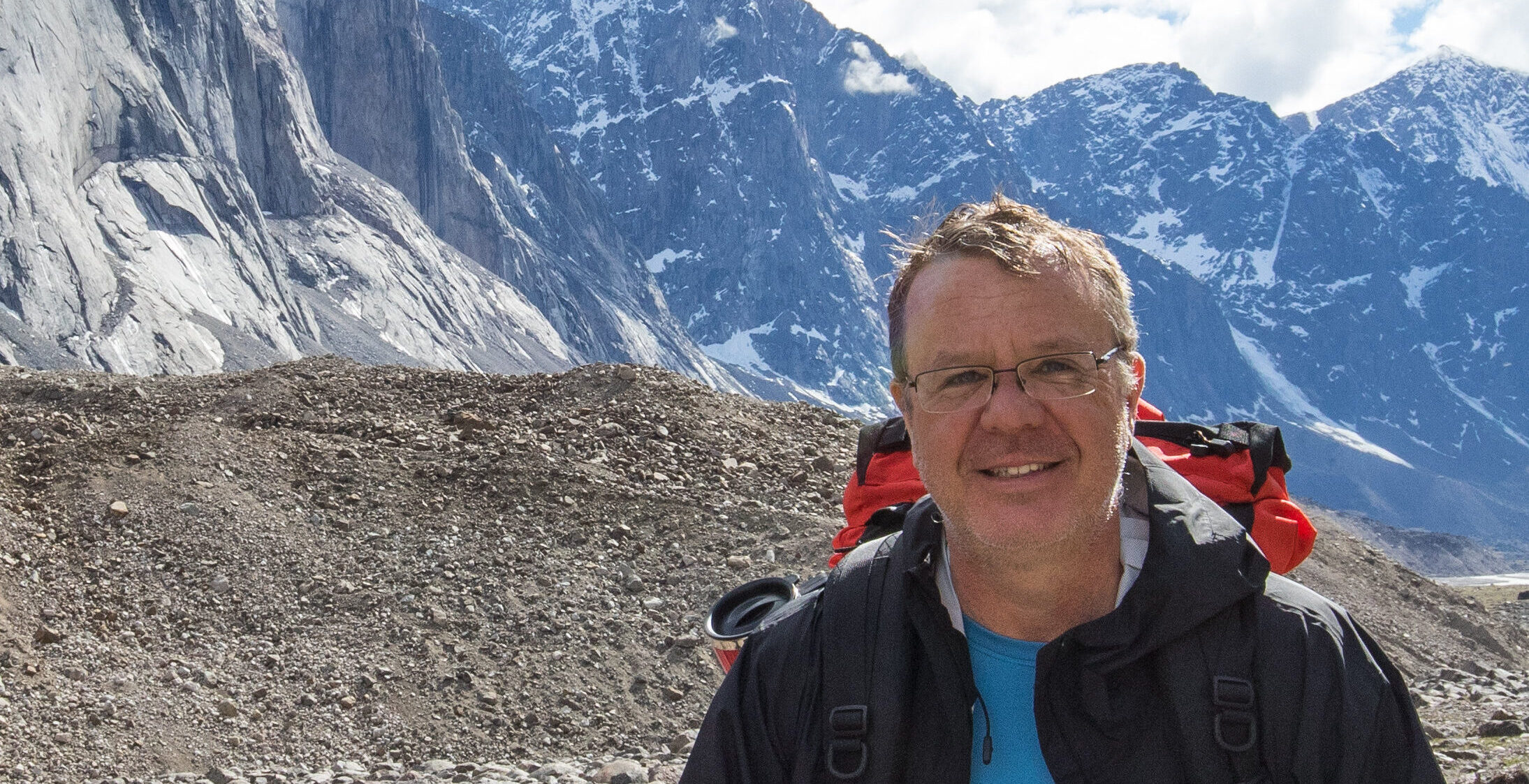
Retiring professor leaves an Unexpected Good Thing for grad students
Faculty, Graduate students, Leadership, Research excellence
41 mins ago
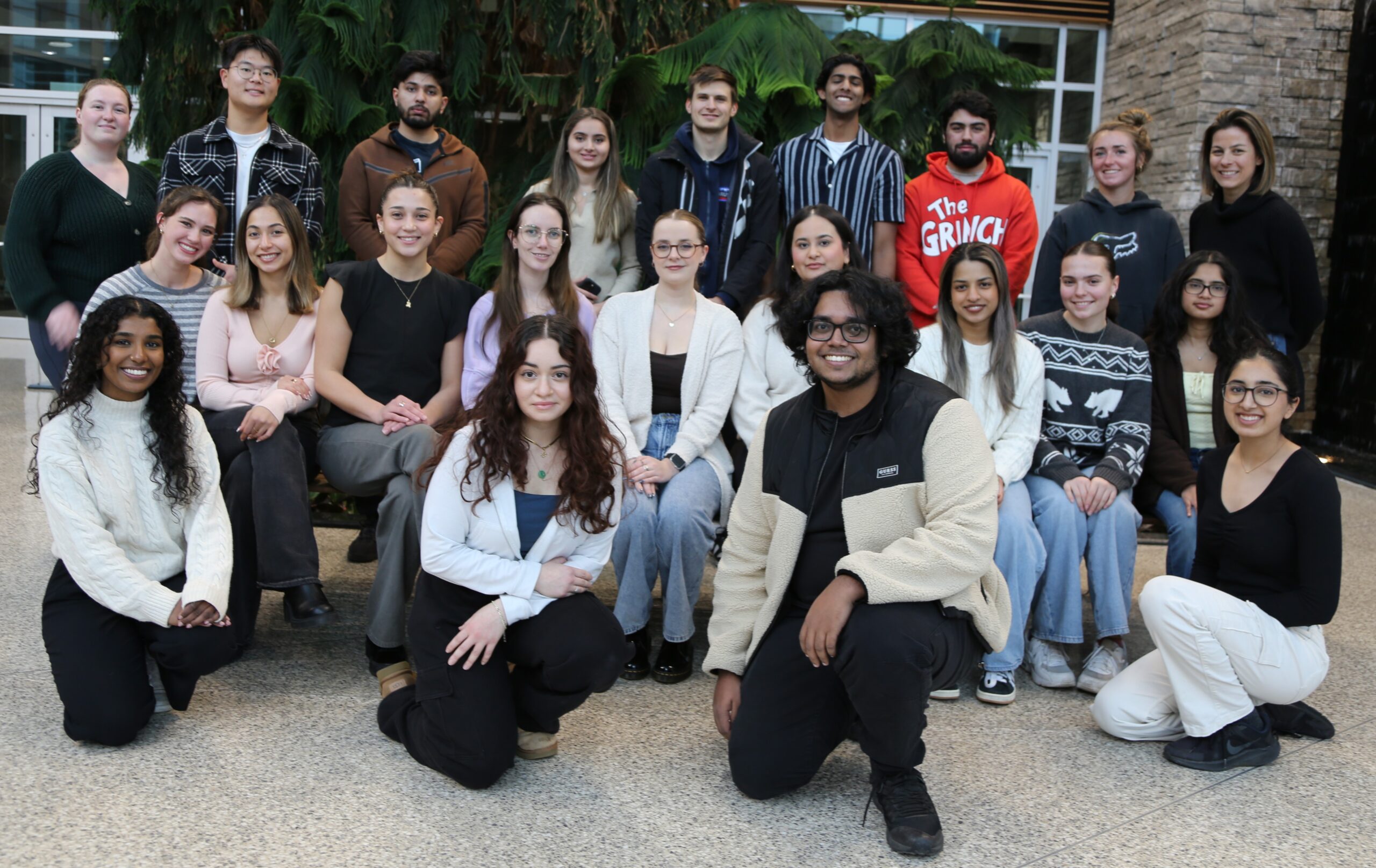
To understand it, teach it – students take nutrition science course on the road
Community, Student experience, Students, Teaching excellence
3 hours ago
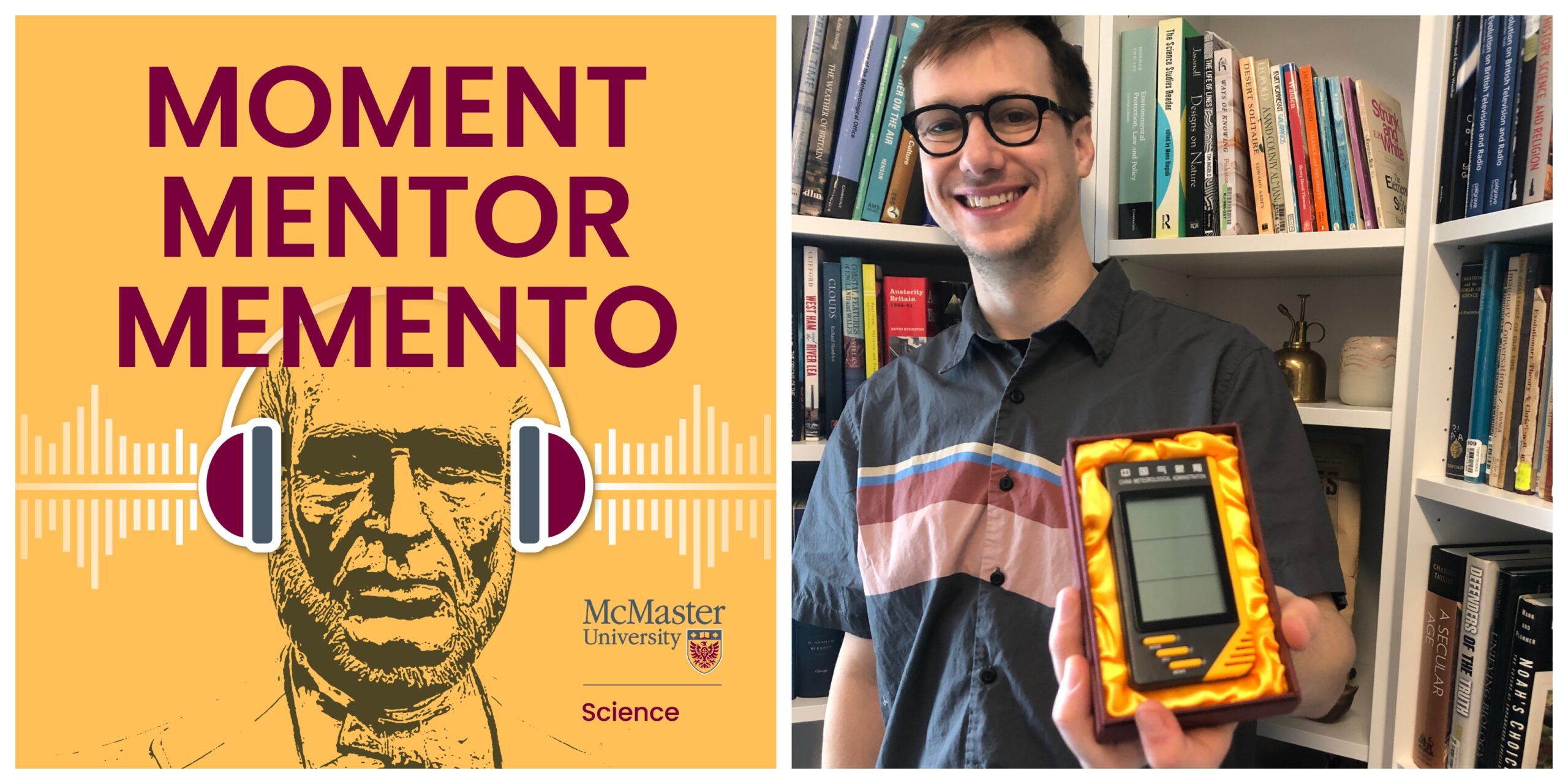
6 days ago
